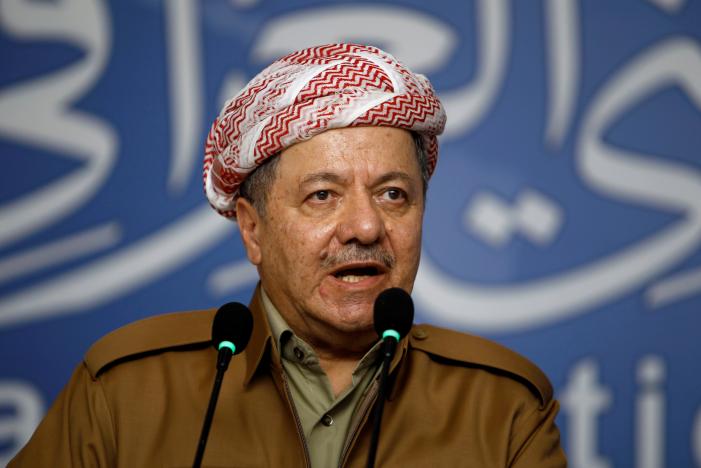Kurdistan is to hold an independence referendum on 25th September 2017, which has been formally announced by Kurdistan’s president, Massoud Barzani. The referendum will be followed, on 6th November, by presidential and parliamentary elections.

FILE PHOTO: Iraqi Kurdish regional President Massoud Barzani speaks during news conference with Ammar al-Hakim, leader of the Islamic Supreme Council of Iraq (ISCI), in Baghdad, Iraq, September 29, 2016. REUTERS/Khalid al Mousily/File Photo
FILE PHOTO: Iraqi Kurdish regional President Massoud Barzani speaks during news conference with Ammar al-Hakim, leader of the Islamic Supreme Council of Iraq (ISCI), in Baghdad, Iraq, September 29, 2016. REUTERS/Khalid al Mousily/File Photo
FILE PHOTO: Iraqi Kurdish regional President Massoud Barzani speaks during news conference with Ammar al-Hakim, leader of the Islamic Supreme Council of Iraq (ISCI), in Baghdad, Iraq, September 29, 2016. REUTERS/Khalid al Mousily/File Photo
While the move is hardly unexpected given President Barzani’s long term commitment to Kurdistan’s independence, its timing says a lot about the conflicts in the wider region, and about the potential for change.
Those conflicts have both shown that Kurdistan is capable of functioning independently, and served to increase its separation from Iraq. It has necessitated border controls around the region, and forced the solidification of governmental structures within it. It has served to increase calls for independence within the region, while at the same time furthering a sense of national identity there.
The announcement suggested that the inhabitants of regions claimed by Kurdistan but disputed by surrounding countries, including Kirkuk and Sinjar, would be allowed to take part in the referendum. This appears to signal an intention to consider them as part of any independent Kurdistan, particularly if the votes there match any wider pro-independence vote.
The statement that the referendum would be closely followed by elections can be read a number of ways. One is that those elections will serve as an opportunity to put the government in place that a fresh state will require, returning to regular elections after a period of disturbance thanks to the war.
Another is suggested by the words of Hoshiyar Zebari, who said that the referendum would not ‘automatically’ trigger independence, but would give Kurdistan a stronger negotiating position. It is possible, therefore, that the elections could act to turn the results of the referendum into action by allowing Kurdistan’s people to select a team to put it in motion.
A third, and more worrying possibility is the connection it makes between the referendum and the election, perhaps suggesting that President Barzani is staking his accumulated political capital on the result.
It remains to be seen how others will react, although it appears that Kurdish officials are already seeking talks with Kurdistan’s neighbours to avoid political or other conflicts based on any possible move to independence. Such conflicts remain a real possibility, especially with the continuing disputes over Kirkuk, which several non-Kurdish militias have promised to ‘reclaim’ from Kurdish forces.
The risk is that a conflict drawing to a close through concerted efforts from all sides could reopen as those who do not want an independent Kurdistan act against it. These could include powerful neighbours such as the Syrian regime, Iran or Turkey, but Baghdad remains the biggest potential threat to the process.
In a way, the announcement of the referendum changes little for Kurdistan, since the threats and possibilities for it remain essentially the same as they have been for many years now. At the same time, it seems likely that the announcement of 25th of September as the date will bring the issues involved into sharper focus, forcing rounds of serious discussion and debate in the months to come.
On the whole though, the coming referendum has come at the only time it can come, in the space between the winding down of the conflict against IS and the reforming of an Iraq too stable to split cleanly. President Barzani appears to have seen that potential, and the announcement of the referendum is likely to shake things up around Kurdistan, potentially in ways none of us can predict.

Add Comment